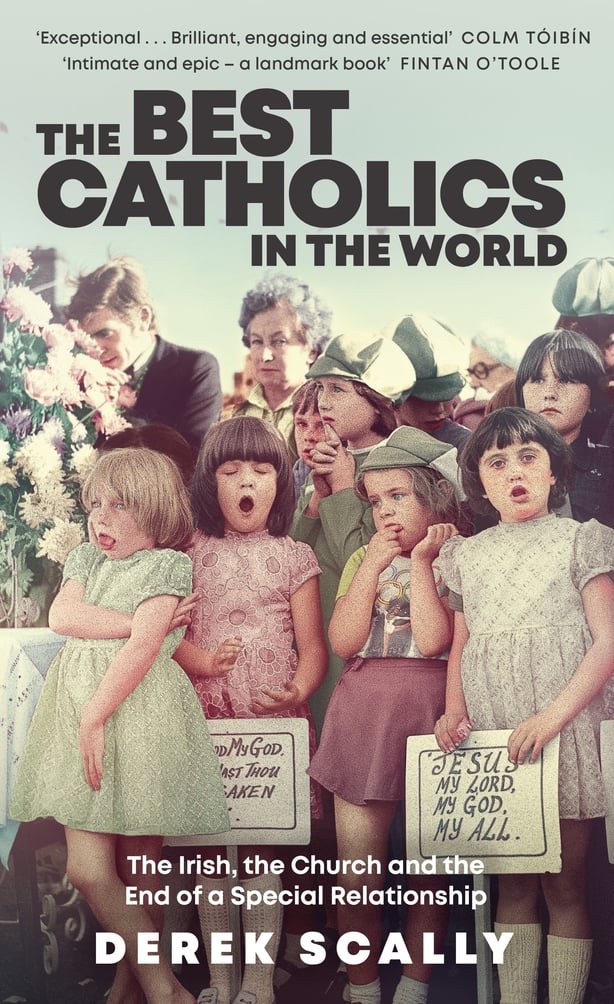We're delighted to present an extract from The Best Catholics in the World, the new memoir by Derek Scally, published by Penguin.
When Dubliner Derek Scally goes to Christmas Eve Mass on a visit home from Berlin, he finds more memories than congregants in the church where he was once an altar boy. Not for the first time, the collapse of the Catholic Church in Ireland brings to mind the fall of another powerful ideology - East German communism. While Germans are engaging earnestly with their past, Scally sees nothing comparable going on in his native land. So he embarks on a quest to unravel the tight hold the Church had on the Irish...
Talk to survivors of Catholic Ireland's excesses, and their allies, and you soon hear a common and consistent refrain: the real risk of today’s attempted remedies repeating, or echoing, the historic abuses they’re supposed to address. Ruling out deliberate malice, as most survivors and campaigners do, one explanation is that unquestioned, inherited bias, combined with the sheer volume of horrors revealed, have impaired the ability to reflect on what it was in Irish society that made these horrors possible.
Look beyond the details of abuse and, alongside the phenomenon of silence, there is often a common denominator of confusion. The legacy of the laundries often triggers a wrestling match in minds between guilt and shame. Mastering this past requires that we define our terms.
We need your consent to load this rte-player contentWe use rte-player to manage extra content that can set cookies on your device and collect data about your activity. Please review their details and accept them to load the content.Manage Preferences
Listen: Derek Scally talks The Best Catholics in the World with Ryan Tubridy
The simplest way I have found for differentiating guilt and shame is this: people feel guilt for what they have done but feel shame for who they are, or how they are made to feel. A religious Sister who bullied a girl in a laundry infringed the girl’s human rights and may feel guilty. The girl who spent years there being told she was filth may feel shame.
Guilt is a wrong that can be righted by the wrongdoer – pay a parking ticket, serve a prison term – while shame is what philosopher Jean-Paul Sartre called a 'haemorrhage of the soul’.
People often feel guilty about involvement in a negative, controllable event and shame about a negative, uncontrollable event. It is possible to feel guilt and shame for one’s own misdeeds but also for others’.
The idea of collective guilt comes into play, researchers say, when a negative event is perceived as relevant to the group and thus individuals within the group. But any feelings of collective guilt depend on one’s own perception of control over the system.
Many in Catholic Ireland, for instance, had no control over struc- tures and events and thus feelings of guilt are correspondingly low. Things are more complicated with collective shame, however: this can be experienced irrespective of control over events, when the negative event or behaviour of others in the group threatens the image of the group as a whole, and you as a member of the group.
I can still remember my flush of shame in a Berlin cinema almost two decades ago as the credits of The Magdalene Sisters rolled. The laundries were not my fault, my responsibility, but I felt strongly that it was my shame, as an Irishman, facing the dumbfounded stares of my German friends.
No one in Ireland wants to be made to feel guilty for abuses in Catholic Ireland if they had no means to change things, nor should they. But it is normal to feel collective shame at the ongoing negative effects of the negative events beyond their control or before their time.
Many years of life in Germany have taught me to separate things: the laundries are not my responsibility. But understanding what made these institutions possible, and the consequences of such systemic oppression in the past, consequences that are still palpable now, is my responsibility – and the responsibility of every Irish citizen.

The Best Catholics in the World by Derek Scally (published by Penguin) is out now.

